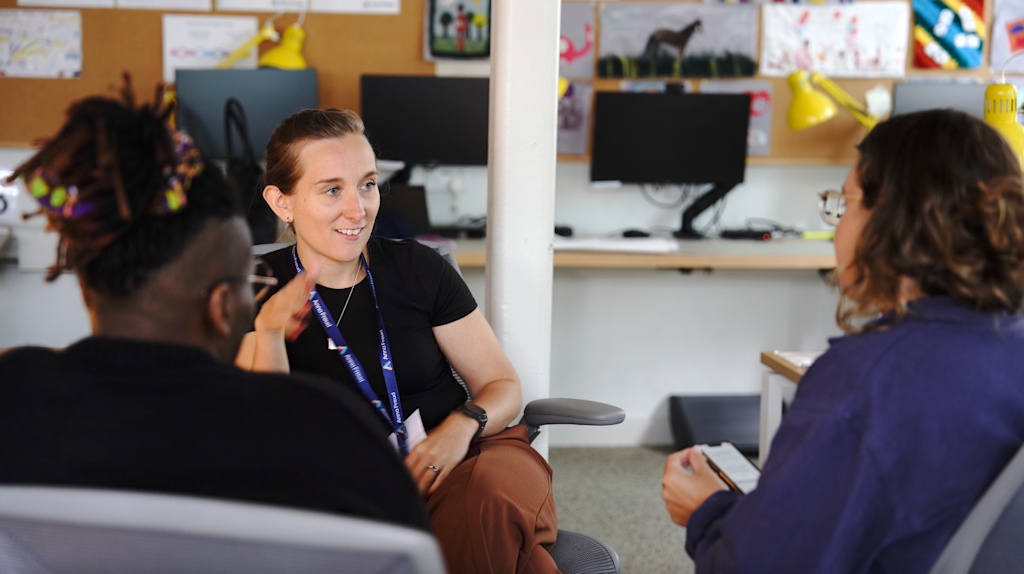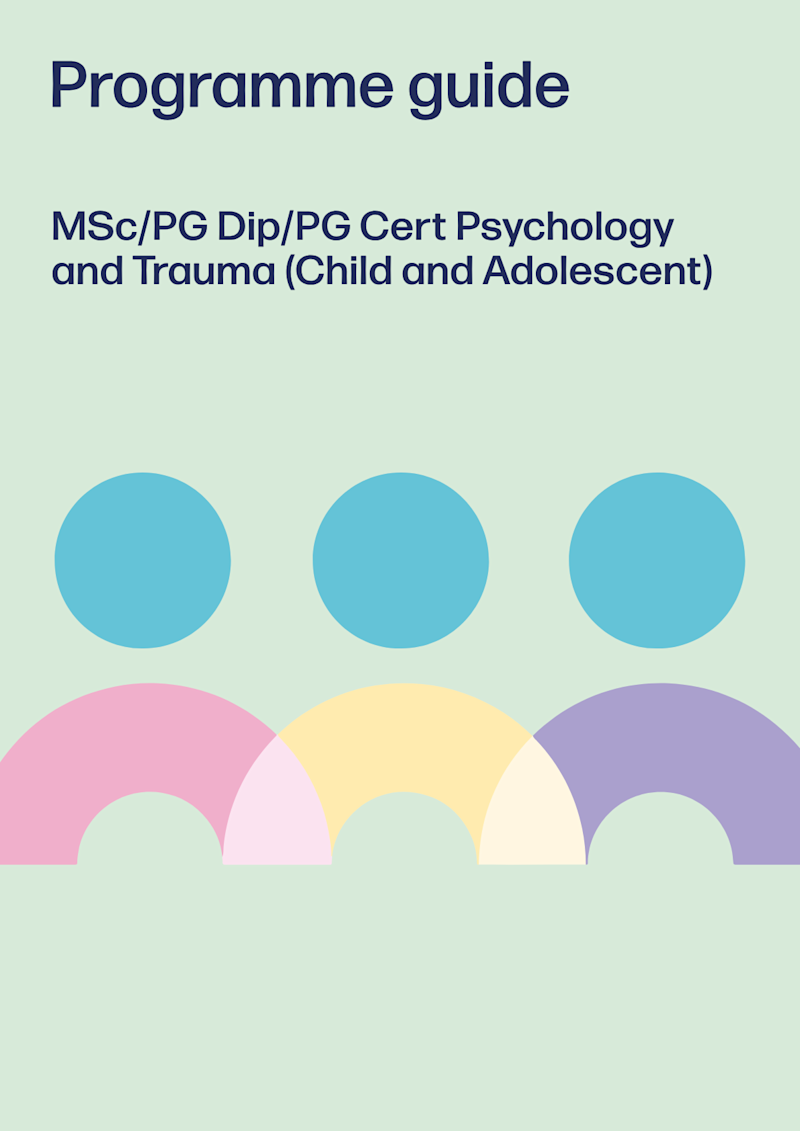Psychology and Trauma, MSc/PG Dip/PG Cert (Child and Adolescent) – Distance Learning
Taught by leading academics and clinicians at Anna Freud, this online distance learning programme will provide you with the opportunity to explore the latest research evidence and applied practice related to the psychological impact of trauma in childhood.

Programme overview
The Psychology and Trauma MSc/PG Dip/PG Cert (Child and Adolescent) postgraduate degree provides students with the opportunity to explore the latest research evidence and applied practice related to the psychological impact of trauma in childhood.
This innovative and flexible programme is studied entirely online, either full-time or part-time, at postgraduate certificate (PG Cert), postgraduate diploma (PG Dip) or master’s level (MSc).

Course details
This programme equips students with an up-to-date evidence base in trauma theory and practice. You will learn about the impact of trauma on children and across the lifespan. The course examines the potential mental health consequences of trauma, including behavioural difficulties, post-traumatic stress disorder (PTSD), complex PTSD and personality disorders. You will also learn about evidence-based practice for prevention and intervention for trauma with children and families.
The Psychology and Trauma MSc/PG Dip/PG Cert (Child and Adolescent) takes a multi-disciplinary approach spanning neuroscience, cognitive and behavioural theories, and systems theories. The programme explores trauma and psychology across various sectors, such as public health, education and social care.
Areas of study include:
Mental health consequences of trauma, including behavioural difficulties.
Post-traumatic stress disorder (PTSD) and complex PTSD.
Personality disorders and evidence-based interventions.
Trauma-informed approaches across diverse professional contexts.
The programme emphasises interdisciplinary learning and provides students with skills to integrate psychological, neuroscientific, and systemic knowledge to address trauma-related challenges.
Programme delivery
The course is delivered entirely online, with most of the week’s learning completed at a time and place to suit you. The course includes lectures, readings, activities and forum discussions. Students also have weekly, virtual contact where they connect with each other and course staff in live seminars, workshops and peer tutorials.
Teaching will be led by expert academics and frontline professionals who work with people affected by trauma. The voices of those with lived experience is also central to the programme. The course sits within the UCL-Anna Freud partnership, benefiting from Anna Freud’s clinical, schools and research expertise.
Who can apply
This programme is suitable for students who wish to deepen their understanding of psychology and trauma, professionals working in education, mental health, social care, or medical settings who are seeking to upskill and individuals looking for flexible distance learning opportunities.
Applicants must:
Have a minimum of an upper second-class bachelor's degree from a UK university or an overseas qualification of an equivalent standard is required.
Have a lower second-class honours degree from a UK university.
Have an overseas qualification of an equivalent standard will be considered if there is evidence of sufficient professional experience in a relevant setting
Applicants will usually have a degree in psychology, mental health, public health, social sciences, child development, education, social work or related disciplines. Candidates with a degree in another discipline will be considered if there is evidence of sufficient professional experience in a relevant setting
Career prospects and opportunities
As this is a new programme, we do not yet have data on alumni destinations. However, the skills and expertise gained on the Psychology and Trauma MSc/PG Dip/PG Cert are designed to support a wide range of career pathways. Graduates will be prepared to pursue impactful roles in mental health services, education, social care, and public health, where trauma-informed practice is increasingly recognised as essential. The programme also provides a strong foundation for careers in non-governmental and humanitarian organisations, as well as in corporate settings where trauma-informed approaches are becoming integral.
For those interested in academic or research careers, this programme offers an excellent platform for further study, such as a PhD in psychology, mental health, or trauma studies. While not a clinical training programme, it nonetheless provides a solid basis for applied training in psychotherapy, psychology, or counselling.
Students will develop a robust set of career-enhancing skills applicable across a range of professional contexts. These include advanced critical thinking and the ability to integrate interdisciplinary knowledge from psychology, neuroscience, and systems theory to address trauma-related challenges. Graduates will also gain expertise in trauma-informed practice and cross-cultural awareness, enabling them to work effectively in diverse global contexts. In addition, the programme cultivates strong communication and advocacy skills, equipping students to share complex ideas with varied audiences and influence trauma-informed policy and practice. Research and data analysis capabilities are also developed, further strengthening graduates’ professional and academic prospects.
-
Programme guide
Download
Take a closer look at the UCL programme, including course content, teaching structure and entry requirements.
